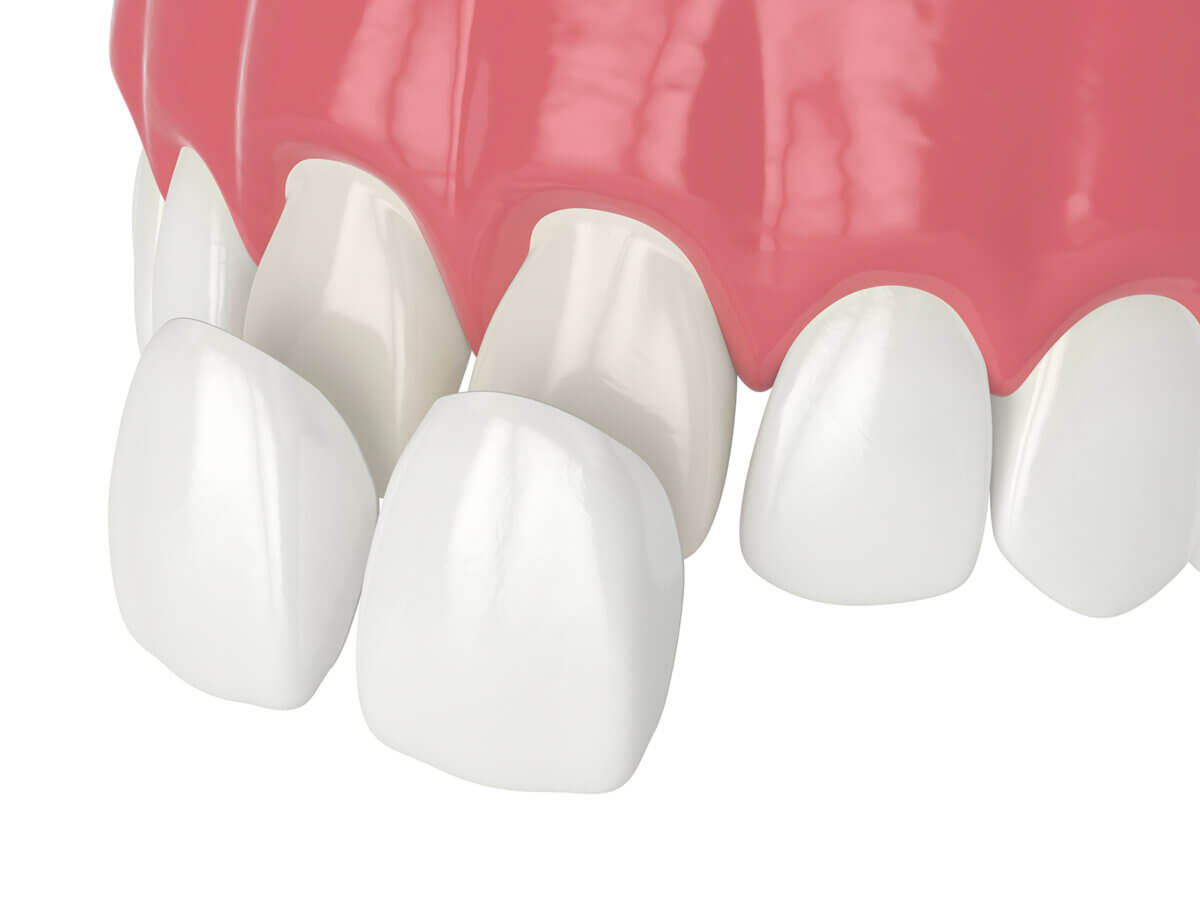Blog
Dental hygiene tips for healthy teeth & gums

Does replacing veneers damage teeth?
A smile is one of the first things people notice in anyone, forming the first impression. You want to make your first impression count, but if you have dental issues like stained, cracked, or broken teeth, it pulls down your self-confidence.
If you have chipped, broken, or crooked teeth, veneers are one of the most popular cosmetic dental procedures to correct such issues. They are thin sheets of porcelain that are custom-designed to the shape of your teeth. They are then applied to your tooth surface to fix uneven, stained, or damaged teeth.
The veneers usually last a long time, for about fifteen to twenty years, and must be replaced. In this article, we will find out when to replace these dental devices, what is the procedure for replacement, and whether replacing them damages teeth.
What is the Material of Dental Veneers?
Dental veneers are primarily made of two types of materials:
- Porcelain – Porcelain ones have been used for a long time as they strongly resemble the original teeth’ color. Porcelain is used not just for making crowns, entire false teeth, and bridgework also uses porcelain.
- Composite resin – Composite resin is a cost-effective alternative to porcelain. It is an artificial material but less durable and more prone to staining.
Why Would You Need to Replace Your Veneers?
Like our natural teeth, veneers are prone to staining, cracking, and other wear and tear.
- If you endure any physical trauma to the mouth, this wear and tear might accelerate, and you might need them replaced sooner.
- Poor dental hygiene can cause tooth decay and result in damaged veneer that needs replacement.
- Consumption of certain foods and drinks, for instance, blueberries, coffee, etc., can stain them.
- Smoking can also cause your veneer to change color.
- Sometimes the dentist might need to access the underlying teeth for some dental work; in that case, the veneer would need to be removed,
When Do I Know I Need to Replace My Veneers?
If you have opted for high-end porcelain veneers, chances are you might need replacement after fifteen or twenty years. Some of the signs that they need replacement are:
- They are chipped or cracked.
- Stains.
- Veneer showing other signs of wear and tear.
Does Replacing Veneers Damage Teeth?
A dental veneer by itself does not damage teeth. Porcelain ones last around fifteen to twenty years, while composite ones may last between five to ten years.
- Porcelain ones are not intended to be replaced, but composite ones can be replaced easily.
- It is difficult to remove porcelain veneers, and they are intended to be permanent cosmetics.
- If you have to change a porcelain veneer, it might damage the teeth which are below.
- Replacing porcelain ones entails getting false teeth or dental crowns.
- Your dentist can easily repair or replace composite veneer.
- The composite veneer does not damage teeth as, by design, they are temporary cosmetics.
Veneer Replacement Process
The initial installation of the veneer and replacing it is almost the same.
- The dentist would first remove the existing dental work carefully so as not to damage the teeth.
- The tooth is then cleaned, and a small part of the tooth’s surface might be removed so that the new dental work adheres to the tooth easily.
- Next, the dentist would take an impression of your tooth (or teeth) and send them to the lab.
- The replacement set of shells would be ready at the lab in a week or two.
- Once the shells are obtained from the lab, the patient would return to the dentist to fix the new veneer to the required teeth.
How to Maintain My Veneers?
If you wish to prolong the life of your dental veneer so that replacement is not needed frequently, follow the tips outlined below:
- Brush twice a day – Veneer is susceptible to bacteria and plaque buildup due to the foods and drinks we consume daily. You must brush your teeth twice with a soft toothbrush and nonabrasive toothpaste.
- Avoid smoking or using tobacco products – Both our natural teeth, as well as dental veneer, can get stained due to smoking or using tobacco products. Stains can lead to a color mismatch between your dental work and natural teeth.
- Do not chew on hard foods or objects – If you have a habit of chewing your fingernails, pens, and other objects or foods, such as ice, you are likely to crack or chip your veneer. So proceed with caution on such non-food as well as hard food items.
Due to daily wear and tear, it becomes necessary to replace them. A composite veneer is cheaper and easier to replace than porcelain ones. You can maintain good oral hygiene and be cautious about what you eat to increase the longevity of your veneer.


